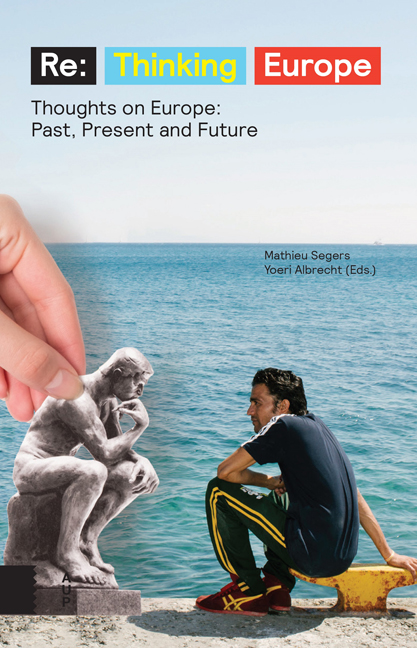The Special Quality of Europe is Culture
Published online by Cambridge University Press: 07 January 2021
Summary
2001
What is the role of culture in European Integration? Permanent and determining. Coherent European culture existed before European economic and political association, since the former depends on relationships between individuals, while the latter depends upon relationships between states, and individuals come together easier than states.
Europe's innovation – cultural pluralism – is victorious world-wide. It is a tendency parallel to the spread of philosophy of human rights, whose basis is a requirement to respect the human individual.
Europe's special quality is no plan, but rather something which already exists: a sensitive attraction to diversity, kept coherent by European humanism. This pluralist sensitivity penetrates to the details, all the way to the core of personality and to all of its momentary states. At the same time, it does not break with those fundamental principles, outgrowths of Judeo-Christian and antique-humanist traditions, which have been rationalized by European worldly thought since the Enlightenment. Europe’s special quality lies in the balance between the universal and the particular, the general and the specific, the shared and the individual.
What unites Europe? Is it only the community of economic interest? Ideologies were unable to unite the continent. Neither the nationalist-socialist nor the communist-socialist vision provided an appropriate basis for unification. Both were destructive fantasies, and both meant submission of the European people to the power centers of those two experiments. The crazy 20th century is now closed and, with it, the history of the two world wars and the shadow of a third. We are through with two ideological utopias, the nationalist and the communist. Both killed many and eventually succumbed. And what is there now? Is ideology absent?
Europe owes its success to respect for pluralism which recognized the mutual dependency of mankind and is able to bow before a child. European pluralism learns to accept and love people in their uniqueness.
This humanism takes into account our mortality and respects the dignity of the personal, single lifetime. The European faces death individually, with relatively little hedging, little hedging, little consolation of after-life, reincarnation, or being lifted to a place where we will partake of all manner of corporeal and spiritual joy.
- Type
- Chapter
- Information
- ReThinking Europe Thoughts on Europe: Past, Present and Future, pp. 243 - 250Publisher: Amsterdam University PressPrint publication year: 2016

